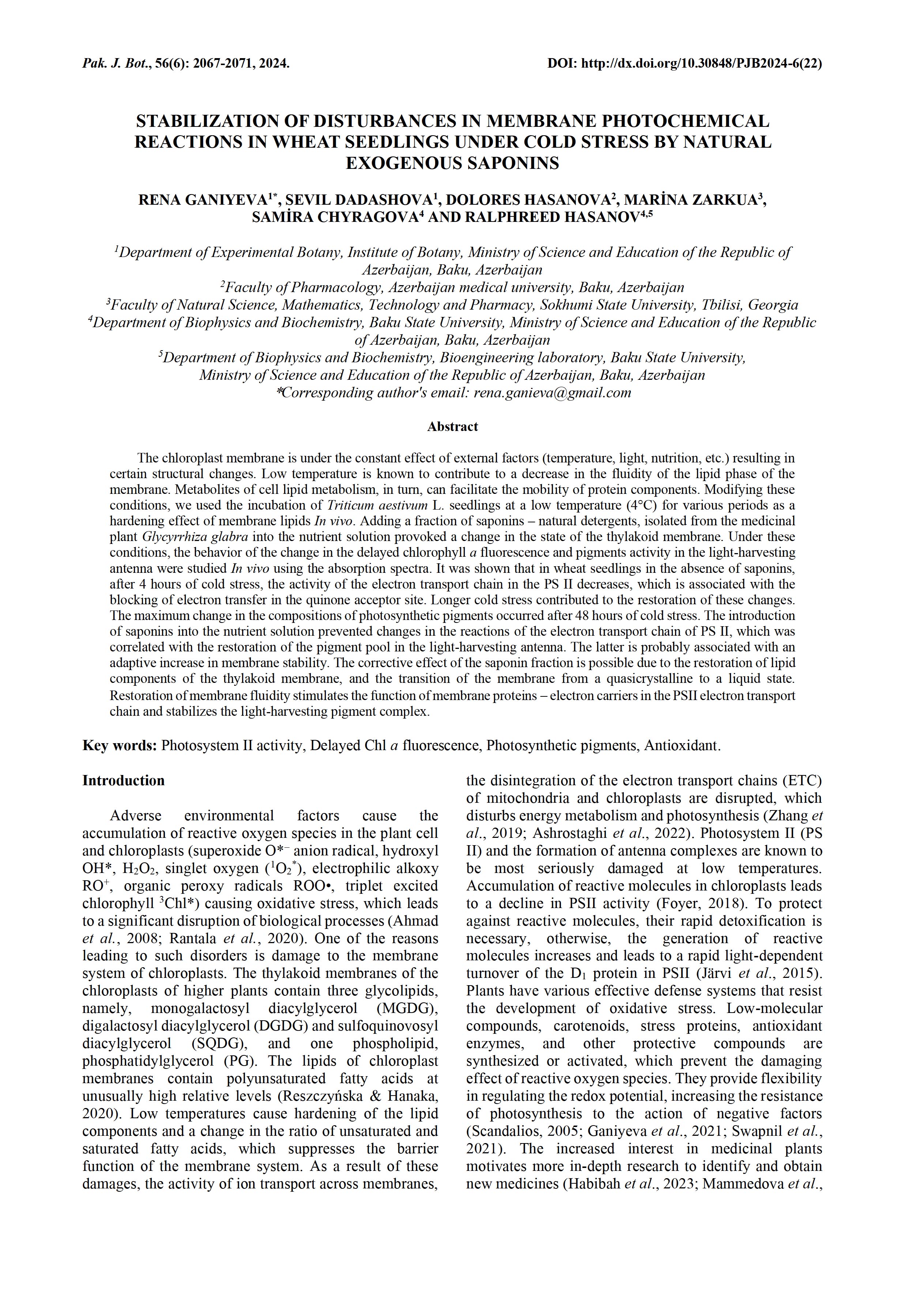
The article “Stabilization of disturbances in membrane photochemical reactions in wheat seedlings under cold stress by natural exogenous saponins” by scientists of the Institute of Botany was published in “Pakistan Journal of Botany” (WOS, Scopus). The authors of the article are PhDs in Biology Rena Ganiyeva and Sevil Dadashova, leading scientific staff of the Department of Experimental Botany of the Institute of Botany, MSE RA; Dolores Hasanova, associate professor of the Faculty of Pharmacology of AMU; Marina Zarkua, associate professor of the Faculty of Natural Sciences, Mathematics, Technology and Pharmacy of Sukhumi State University; Samira Chiragova, associate professor of the Department of Biophysics and Biochemistry of BSU MSE RA, and Ralphrid Hasanov, professor of the Department of Biophysics and Biochemistry and head of the Bioengineering Laboratory of the BSU MSE RA. The article mentions that low temperature, like various stresses, affects the thylakoid membrane and prevents the permeability of ions from its lipid phase. By modifying our studies, in vivo wheat germs were incubated at low temperature (4°C) for different periods of time. Effect of triterpene saponin fraction obtained from Glycyrrhiza glabra plant on nutrient solution causes changes in thylakoid membrane state. In our research, the characteristic variation of chlorophylla delayed fluorescence and the state of pigments in light-collecting antennas were studied. Restoration of membrane fluidity activates the work of proteins in the transport of electrons in the chain of FS II and stabilizes the light-collecting pigment complex.